Thanks to the more benevolent side of technological advances, recordings of a roaming and domestic provenance are no longer restricted to four-track strummers or those with the resources of rock royalty. Which, means there are not many real limits upon those with advanced levels of imagination and ingenuity. As evidenced by the below divergent sonic dispersals.
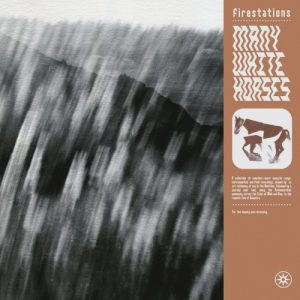 Following on from 2023’s still-rousing Thick Terrain LP, which captured London’s Firestations in wide-screen ensemble mode, the freshly-issued Many White Horses (Lost Map Records) is contrastingly a far more minimised affair.
Following on from 2023’s still-rousing Thick Terrain LP, which captured London’s Firestations in wide-screen ensemble mode, the freshly-issued Many White Horses (Lost Map Records) is contrastingly a far more minimised affair.
Constructed by a duo incarnation of the band, with only Michael Cranny (vocals, guitars, ukelele, clarinet, field recordings, synths) and Laura Copsey (vocals, flugelhorn, flute) featured across sessions captured on a boat and at home, this is a deliberately snug nine-track set that cleaves closer to the former’s recent pastorally inclined work inside Mirrored Daughters rather than the better-known melodic art-rock approaches of regular Firestations releases.
Infused by an inspirational trip to the Inner Hebrides, Many White Horses is a hushed and layered electro-acoustic exploration of maritime environments and atmospheres. The end product consequently veers between the pensively comforting and the subtly forbidding.Hence, through its fleeting yet intricate journey, the record ventures through Tunng’s most rustic routes (“All The Way Back Down Here” and the sublime title track); lilting psych-folk loveliness (“The River Knows” and “A Weight Starts To Lift”); spoken-word abstractions (“Reading The Water”); ethereal ambient passages (“Bloodstone Hill” and “The Castle Is Wrong”); desolate mantra-like lamentations (“I Only Once Heard Them Singing”); and evocative heavily-textured wistfulness (“Silversands”).
Intelligent and inventive, whilst avoiding aloofness, Many White Horses is a fine extension to the Firestations catalogue.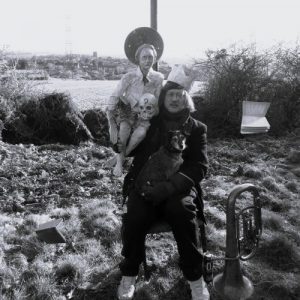 Pursuing even deeper self-made sound world studies is the elusive Stockport-based Duncan Sumpner, who returns with his first long-player as Songs Of Green Pheasant since 2020, in the form of Sings The Passing, via Galway’s reliable Rusted Rail.
Pursuing even deeper self-made sound world studies is the elusive Stockport-based Duncan Sumpner, who returns with his first long-player as Songs Of Green Pheasant since 2020, in the form of Sings The Passing, via Galway’s reliable Rusted Rail.
Recorded in his attic studio, with passing-through accomplices Andy Cocker (guest vocals and technical support) and Dan Skelton (drums), Sumpner’s notable multi-instrumentalist skills and part-buried tones are tiered-up mysteriously and fastidiously across the seven internally-sprawling segments. Whilst its predecessor, When The Weather Clears, proved to be an immersive experience, this sequel goes several seams beneath.
The net effect is akin to being lost in labyrinthine subterranean tunnels, reverberating with musical offcuts that have been bonded-together into warmly intimate yet otherworldly mosaics. Therefore, along the way, we’re moved through murky yet meticulous meshes of acoustic guitars, cocooning Panda Bear-styled vocal harmonies and treated brass (“Dark” and “By Tomorrow”); serenely spaced-out bucolic art-pop (“Have Patience”); patchworks of ecclesiastical voicings and chamber-folk meanderings (“The Visiting Hours And The Rain” and “Whitsun Girls”); eleven minutes echoing the most late-Talk Talk-imbued adventures of labelmates The Declining Winter (“Private Prophecy”); and pensive campfire ruminations (“Who Needs Money”). Not an album that gives up its mesmeric treasures quickly and easily, Sings The Passing requires persistence and an open-mind. Yet once the enigmas are part-decoded, it gives back graciously and generously. An unexpected low-key triumph, all told.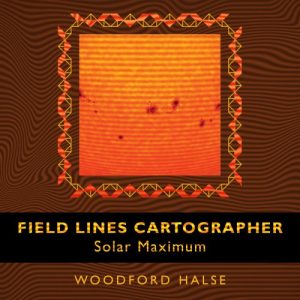 Mark Burford certainly knows a thing or two about going deep, as well as wide and interstellar, from the comforts of an electronics-packed DIY set-up, under his Field Lines Cartographer alias. For his first return to Woodford Halse since 2022’s Superclusters — after sojourns with Castles In Space, Quiet Details and DiN — proceedings for Solar Maximum fixate on our nearest star’s cycles of activity.
Mark Burford certainly knows a thing or two about going deep, as well as wide and interstellar, from the comforts of an electronics-packed DIY set-up, under his Field Lines Cartographer alias. For his first return to Woodford Halse since 2022’s Superclusters — after sojourns with Castles In Space, Quiet Details and DiN — proceedings for Solar Maximum fixate on our nearest star’s cycles of activity.
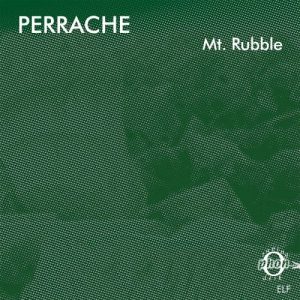 Taking things down to more terra firma-focused conceptualism is Perrache’s Mt. Rubble (Taping Desk O-Phon). A six-part suite conceived by erstwhile Polytechnic Youth label alumnus Joachim Henn in lateral reference to Stuttgart’s Monte Scherbelino, a human-made mountain built from wartime debris, this collection pushes the edges of wordless homemade intensity through its manipulation of elemental analogue synthesiser strata.
Taking things down to more terra firma-focused conceptualism is Perrache’s Mt. Rubble (Taping Desk O-Phon). A six-part suite conceived by erstwhile Polytechnic Youth label alumnus Joachim Henn in lateral reference to Stuttgart’s Monte Scherbelino, a human-made mountain built from wartime debris, this collection pushes the edges of wordless homemade intensity through its manipulation of elemental analogue synthesiser strata.
-Adrian-
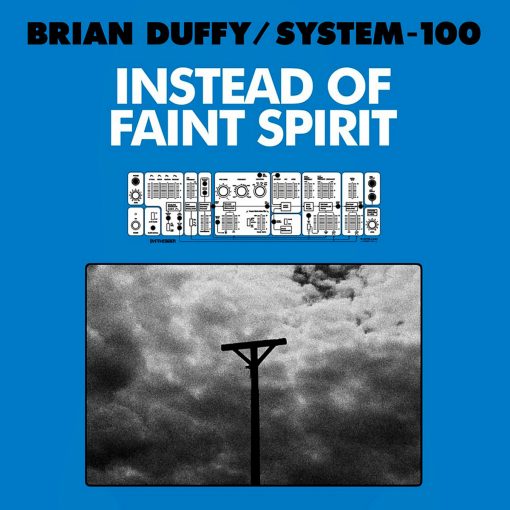

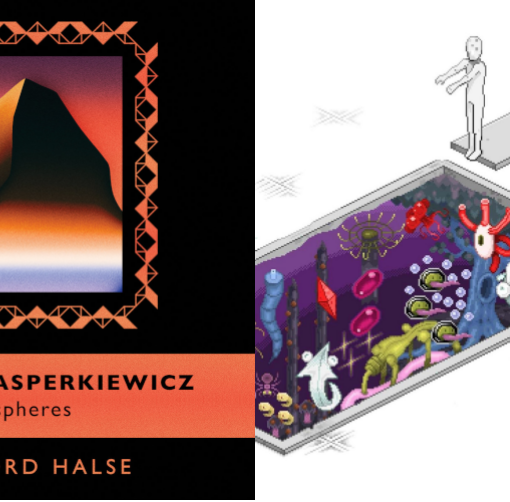

One thought on “Firestations – Many White Horses / Songs Of Green Pheasant – Sings The Passing / Field Lines Cartographer – Solar Maximum / Perrache – Mt. Rubble”
Thanks for the heads up on the Firestations..loving it so far